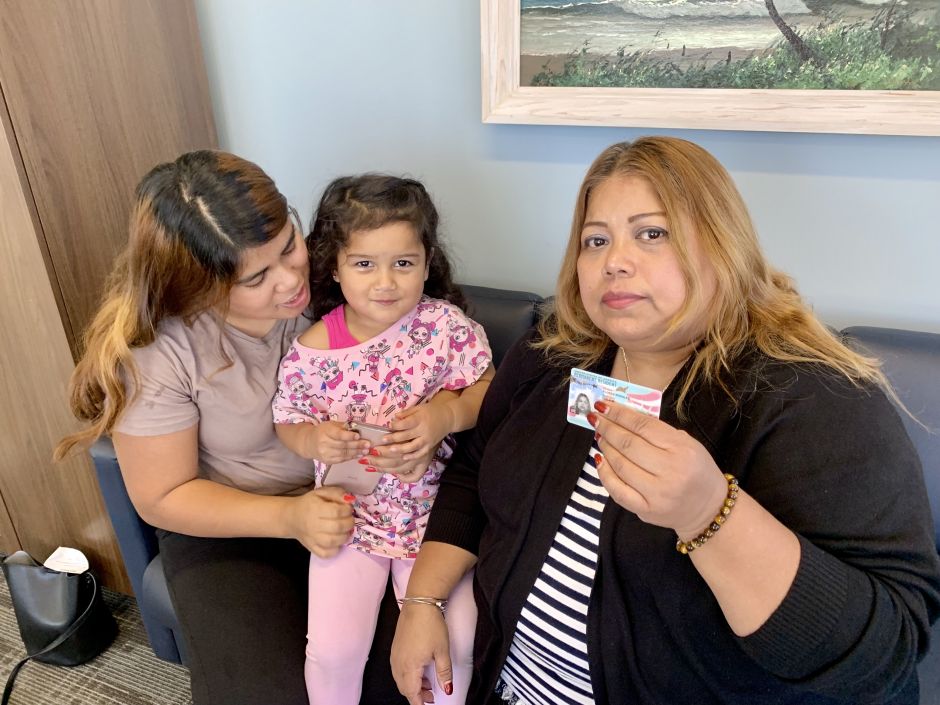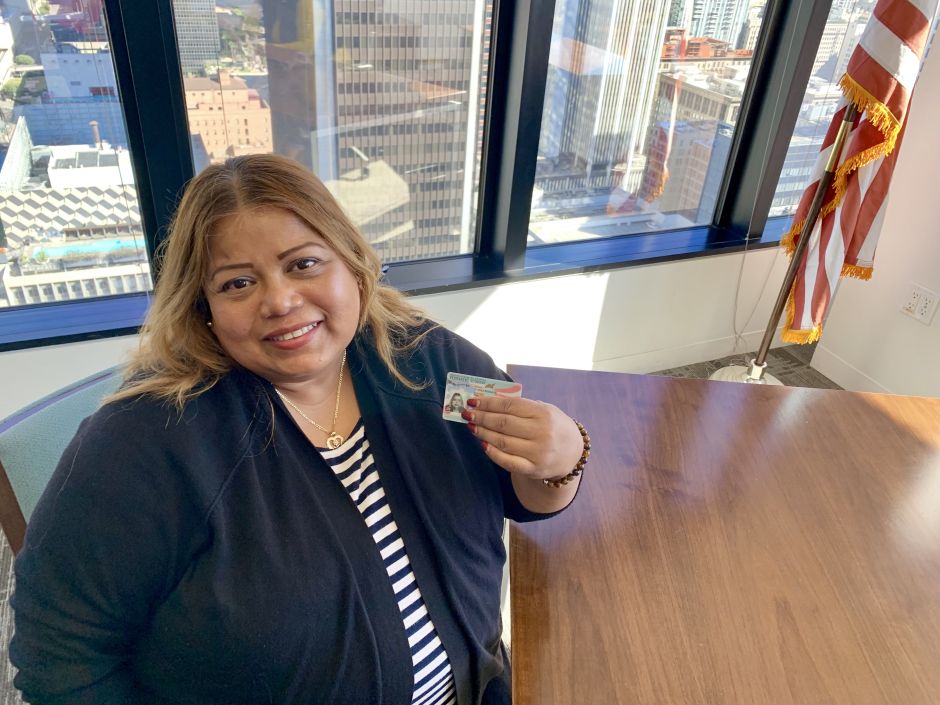A fundamental requirement for those protected under the TPS to adjust their status requires that they live in the states attached to their jurisdiction.
Zoila Flores Rosales, a Honduran covered by the Temporary Protected Status (TPS), obtained her permanent residence in the United States, thanks to the failure of the Court of Appeals for the Ninth Circuit allows certain beneficiaries of this program to adjust their immigration status .
“When the officer – of the Immigration and Citizenship Service (USCIS) – told me in the interview that they had approved my residence, I wanted to hang on his neck and hug him. I couldn't stop crying. They were tears of happiness, ”says Zoila, excited to remember the moment.
The new resident emigrated to the US in 1990. “I was very young when I came here. We got together a group of friends and decided to leave Honduras because we wanted to get out of poverty. In my house, we were seven brothers and there was not even the opportunity to go to college, ”he says.

For almost ten years, Zoila was undocumented until in 1999 she was protected by the TPS. Later she gave birth to her two children Marcos Caballero who is now 24 years old; and Sofía Caballero, 22 years old. They were born in Los Angeles.
“I already knew that due to a decision of the Ninth Circuit, certain TPSians could fix our immigration status if we had a citizen son or husband,” he says.
However, when his eldest son turned 21, he did not hurry much because he felt protected by the TPS, but when President Trump announced the end of this program, he decided to hurry up and seek legal help.
“We went to see immigration lawyer Eric Price. I lost a year fixing my birth certificate because I had two birth dates. Once that matter was resolved, in eight months I obtained residence without having to leave the country, ”he adds.

A decision in the Ramirez lawsuit against Brown in the Court of Appeals for the Ninth Circuit in 2017 allows TPSians married to a U.S. citizen; or with a child over 21 years old born in the USA, apply for residence even if they did not have a legal entry into the country. Another previous 2013 ruling in the Flores vs. USCIS lawsuit allows the TPSians to adjust their status through immediate family members.
The simple fact of having active TPS is considered as a legal entry under the Ramírez lawsuit. Without this ruling, Zoila would have had to travel to Honduras to fix her immigration status when her eldest son made the residency petition,
A fundamental requirement for TPSians to adjust their status through these rulings requires that they live in the states attached to their jurisdiction. The jurisdiction of the Ninth Circuit of the Court of Appeals covers California, Alaska, Arizona, Hawaii, Idaho, Montana, Nevada, Oregon, Washington, and the Guam and Northern Mariana Islands. The Sixth Circuit of the Court of Appeals includes Kentucky, Michigan, Ohio, Tennessee and Cincinnatti.
Zoila says she was tired of living in anxiety because they never knew, if the TPS were going to extend it. The program was renewed every two years.
Loading the player …
The Honduran immigrant, now a US resident, says she dropped a weight when she was approved for residency. "It's just a piece of plastic, but from the moment you have it in your hands, you can breathe easy," he says.
She never wanted to leave the country when she had TPS because she always had a recurring nightmare. "I dreamed that I was going to Honduras, and when I was there at the airport, the news that the TPS was canceled and that we were out of the country could no longer be returned," he says.
And as he has always been superstitious, he says he preferred not to take the risk.
Zoila reveals that now her greatest desire is to return to school to study fashion design and pastry. “First, I'm going to take out my high school,” explains the single mother who makes a living as a cashier in a parking lot.
For March, he plans to visit Honduras where he has not returned for 30 years. “My father and mother died without being able to say goodbye to them. I want to go make their grave, ”he notes.
And regrets the crisis of insecurity in the homeland that saw her born. "People don't want to work anymore because gangs can't see someone selling or doing something to get money when they then demand payment of what they call war tax," he adds.

Full of happiness, Zoila says she will be counting the remaining days to turn five years of resident and apply for citizenship. "I want to have all the rights and vote," he says.
Attorney Eric Price says that currently all TPS beneficiaries can seek the possibility of immigration adjustment. This can be done safely and safely through a request from a direct relative who is a citizen of the United States, who can be a child, partner or a parent.
"They must also verify good moral solvency, not have a criminal record and prove that they will not be a burden on the country," he says.









